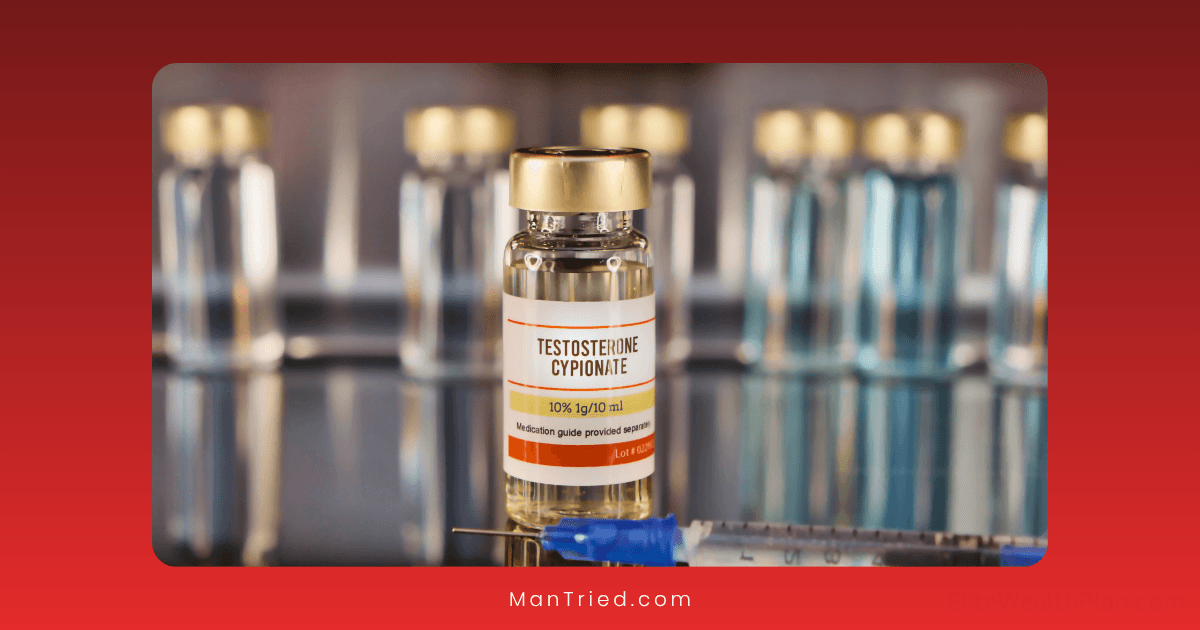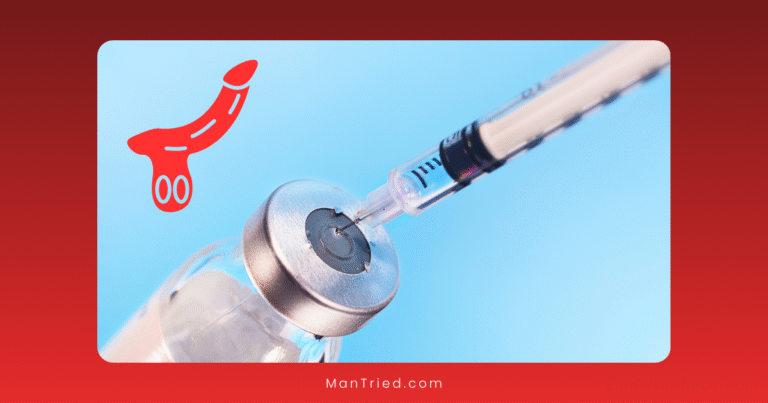Long-Term Effects of Testosterone Therapy: What the Latest Research Shows

For years, testosterone replacement therapy (TRT) has been surrounded by controversy and conflicting information about its long-term safety. Men seeking relief from symptoms of low testosterone have had to weigh uncertain risks against potential benefits, often with incomplete information.
However, the landscape of testosterone therapy has changed dramatically with the publication of landmark research that provides the most definitive answers yet about the long-term effects of TRT. This comprehensive guide examines what the latest science reveals about testosterone therapy’s impact on cardiovascular health, prostate safety, metabolic function, and more.
The TRAVERSE Trial: A Game-Changer in Testosterone Research
The most significant recent development in our understanding of long-term testosterone therapy comes from the Testosterone Replacement Therapy for Assessment of Cardiovascular Events in Men with Hypogonadism (TRAVERSE) trial, published in the New England Journal of Medicine.
Study Design and Scope
The TRAVERSE trial stands as the largest and most rigorous study of testosterone therapy to date:
- Participants: 5,246 men aged 45 to 80 with symptoms of hypogonadism
- Health status: Men with pre-existing cardiovascular disease or high cardiovascular risk
- Treatment: Daily transdermal 1.62% testosterone gel vs. placebo
- Duration: Mean follow-up of 27.1 months
- Primary endpoint: Major adverse cardiovascular events (MACE) including cardiovascular death, non-fatal myocardial infarction, or non-fatal stroke
This robust study design addresses many limitations of previous research, providing a clearer picture of testosterone’s long-term effects.
Cardiovascular Safety: Addressing the Biggest Concern
Perhaps the most significant finding from TRAVERSE concerns cardiovascular safety—previously the area of greatest concern for long-term testosterone use.
What the Research Shows
The TRAVERSE trial found:
- No increased risk of major adverse cardiovascular events (MACE) in testosterone users compared to placebo
- A small, non-significant reduction in overall mortality with 16 fewer deaths in the testosterone group
- Improved lipid profiles in men receiving testosterone therapy
- An unexpected increase in atrial fibrillation cases (91 in testosterone group vs. 63 in placebo)
- No significant difference in heart failure or venous thromboembolism between groups
According to Cedars-Sinai Medical Center, these findings should reassure physicians about prescribing testosterone for appropriate patients, though monitoring remains important.
Context and Previous Concerns
These results are particularly significant because:
- In 2015, the FDA mandated a warning on testosterone products about potential cardiovascular risks
- Several older observational studies had suggested increased cardiovascular events with TRT
- The European Medicines Agency had also expressed concerns about cardiovascular safety
The TRAVERSE findings effectively address these regulatory concerns with high-quality evidence, representing a major shift in our understanding of testosterone safety.
Prostate Health: Clearing Up Long-Standing Fears
Concerns about testosterone therapy potentially increasing prostate cancer risk or worsening urinary symptoms have persisted for decades. The TRAVERSE trial provides important insights here as well.
Prostate Cancer Risk
The data shows:
- No significant difference in prostate cancer incidence between testosterone and placebo groups
- Only 5 high-grade prostate cancers in the testosterone group compared to 3 in the placebo group
- No evidence that testosterone therapy “awakens” dormant prostate cancers
Lower Urinary Tract Symptoms (LUTS)
Another important finding:
- Testosterone therapy did not worsen lower urinary tract symptoms
- No significant differences in urinary function between groups
- This contradicts older beliefs that testosterone might exacerbate BPH symptoms
These findings align with more recent understanding that physiological testosterone levels do not promote prostate cancer and may actually be beneficial for overall prostate health in hypogonadal men.
Metabolic Benefits: Beyond Sexual Function
While sexual benefits are often the primary motivation for starting TRT, the TRAVERSE trial revealed significant metabolic advantages that may be even more important for long-term health.
Diabetes Prevention
One of the most striking findings was:
- A 22.5% reduction in new onset diabetes progression in men treated with testosterone
- This represents a substantial preventive effect for a major chronic disease
- The benefit was consistent across subgroups
Body Composition Effects
Though not a primary endpoint, the trial confirmed previous research showing:
- Increased lean muscle mass in testosterone users
- Reduced body fat, particularly visceral fat
- Improved insulin sensitivity
These metabolic improvements suggest testosterone therapy may have applications beyond just symptom relief, potentially serving as part of a comprehensive approach to metabolic health in hypogonadal men.
Bone Health: Unexpected Findings
Contrary to expectations, the TRAVERSE trial revealed some surprising results regarding bone health:
Fracture Risk
- A paradoxical increase in fracture incidence among testosterone-treated men (3.5%) compared to placebo (2.4%)
- This finding contradicts previous smaller studies suggesting testosterone improves bone density
- The trial did not include bone mineral density measurements, limiting interpretation
Possible Explanations
Researchers have proposed several hypotheses for this unexpected finding:
- Increased physical activity in testosterone users leading to more exposure to fracture risk
- Potential reporting bias
- Random statistical variation
This area clearly requires further research, as the mechanistic relationship between testosterone and bone health is well-established, making the increased fracture rate difficult to explain.
Sexual Function and Quality of Life
The TRAVERSE trial confirmed many of the well-known benefits of testosterone therapy:
Sexual Function Improvements
- Significant increases in sexual desire and frequency
- Interestingly, no significant improvement in erectile function compared to placebo
- This suggests that while testosterone improves libido, erectile dysfunction may require additional treatments
Mood and Depression
- Depression was found in approximately 50% of men with hypogonadism
- Modest improvements in depression symptoms were noted with testosterone therapy
- These improvements were statistically significant but smaller than those seen in some previous studies
Hematological Effects and Monitoring
The TRAVERSE trial also provided insights into blood-related effects of testosterone therapy:
Red Blood Cell Production
- Testosterone therapy corrected anemia in 41% of treated men compared to 27.5% in the placebo group
- Increased hematocrit levels were observed, as expected
- Despite concerns about excessive red blood cell production, no increase in thrombotic events was observed
Monitoring Recommendations
Based on these findings, current monitoring recommendations include:
- Hematocrit assessment before treatment and periodically thereafter
- Consideration of dose reduction or therapeutic phlebotomy if hematocrit exceeds 54%
- Regular blood pressure monitoring, particularly given the atrial fibrillation finding
Who Should Consider Testosterone Therapy?
The TRAVERSE trial helps clarify which men are most likely to benefit from testosterone therapy with acceptable risk:
Appropriate Candidates
- Men with consistently low testosterone levels (typically below 300 ng/dL)
- Presence of symptoms associated with low testosterone (fatigue, reduced libido, etc.)
- Absence of contraindications
- Willingness to undergo regular monitoring
Caution Advised For
- Men over 80 (not studied in TRAVERSE)
- Men under 45 (not studied in TRAVERSE)
- Those with uncontrolled heart failure
- Men with untreated severe sleep apnea
- Those seeking performance enhancement without hypogonadism
According to Harvard Health, men and their doctors should still carefully consider individual risk factors before committing to long-term testosterone therapy.
Practical Considerations for Long-Term TRT
For men considering or currently using testosterone therapy, several practical considerations emerge from the latest research:
Monitoring Protocol
A comprehensive monitoring approach should include:
- Testosterone levels (aiming for mid-normal range)
- Complete blood count with hematocrit
- Metabolic panel
- Lipid profile
- Prostate-specific antigen (PSA) in men over 40
- Blood pressure checks
- Symptom assessment
Duration of Therapy
The TRAVERSE trial followed men for just over two years, but many men use testosterone for much longer periods. Current understanding suggests:
- Benefits continue with ongoing therapy
- Risks do not appear to increase substantially over time
- Discontinuation leads to return of hypogonadal symptoms in most men
- Lifelong therapy may be appropriate for true hypogonadism
Delivery Methods and Considerations
While the TRAVERSE trial used transdermal gel, other delivery methods include:
- Injections (cypionate, enanthate)
- Pellet implants
- Nasal gel
- Oral testosterone undecanoate
Each has different pharmacokinetics that may influence both benefits and side effects, though comparative long-term data between methods remains limited.
Limitations of Current Research
Despite the strength of the TRAVERSE trial, several important limitations remain:
Population Studied
- Limited to men aged 45-80
- Focused on those with cardiovascular risk factors
- May not generalize to younger men or those without cardiovascular risk
Duration
- Mean follow-up of 27.1 months
- Effects beyond this timeframe remain somewhat uncertain
- Some outcomes may take longer to develop
Specific Populations
- Limited data on men of different ethnicities
- Unclear applicability to men with specific conditions like HIV, chronic opioid use, or Klinefelter syndrome
The Future of Testosterone Research
Several important questions remain for future research:
Ongoing Areas of Investigation
- Longer-term follow-up beyond 3-5 years
- Effects in younger men (under 45)
- Clarification of the unexpected fracture risk finding
- Mechanisms behind atrial fibrillation increase
- Comparative effectiveness of different testosterone formulations
- Role of testosterone in specific conditions (diabetes prevention, cognitive function)
The Bottom Line: Balancing Benefits and Risks
The latest research, particularly the TRAVERSE trial, provides the most comprehensive picture to date of testosterone therapy’s long-term effects:
Key Takeaways
- Cardiovascular safety is better than previously thought, with no increase in major adverse cardiac events
- Prostate concerns appear largely unfounded, with no significant increase in cancer risk or urinary symptoms
- Metabolic benefits are substantial, including reduced diabetes risk
- Sexual function improvements are consistent, particularly for libido
- Unexpected findings like increased atrial fibrillation and fracture risk warrant further investigation
- Regular monitoring remains important for safe long-term use
For men with true hypogonadism and symptoms affecting quality of life, the evidence increasingly suggests that properly monitored testosterone therapy offers benefits that outweigh the risks for most patients.
As with any medical treatment, individualized decision-making with a knowledgeable healthcare provider remains essential. The good news is that these decisions can now be made with much better information than was available just a few years ago.
Have you had experience with long-term testosterone therapy? Share your thoughts in the comments below.






